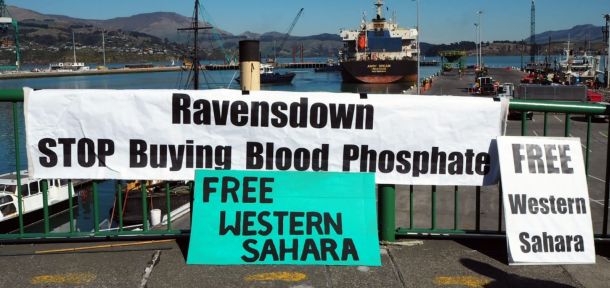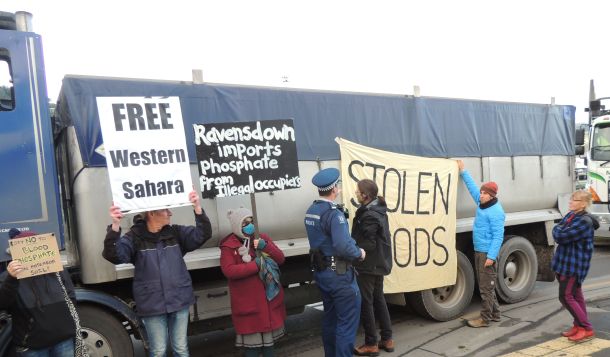
While other companies internationally have managed to find alternative sources of phosphate - and in spite of a request of the New Zealand government that they do the same - the Kiwi fertilizer industry seems unwilling to drop its imports from occupied Western Sahara.
In an email to WSRW on 6 May 2020, the Minister of Foreign Affairs of New Zealand, Rt. Hon Winston Peters wrote that "the New Zealand Government has consistently made it clear to companies importing from Western Sahara that they must comply with international law, seek independent legal advice, and that they import at their own risk."
The Minister continued that "The Government has also requested that the fertiliser industry actively research the viability of alternative sources of phosphate that will meet the specific requirements of New Zealand pasture. Unfortunately, so far no viable alternative has been forthcoming but it is the Government’s expectation that efforts to find an alternative source will be ongoing."
The email came in response to a letter sent by WSRW in March this year, asking the Kiwi government what steps it has taken to end the imports of phosphate rock from occupied Western Sahara into New Zealand by two farmer cooperatives: Ravensdown and Ballance Agri-Nutrients. The question is pertinent, particularly in view of the government's capacity as shareholder in the two importing cooperatives through LandCorp Farming Ltd, a state-owned enterprise focussed on pastoral farming. In addition, WSRW has noted that the government of New Zealand had already requested both Ballance and Ravensdown to look for other phosphate sources. As communicated by the country's Minister for Trade and Export Growth, Hon. David Parker, in February 2019, the Government has met with senior representatives of the Fertilizer Association, Ravensdown and Ballance in November 2018, where they "encouraged the industry to actively seek alternative sources of phosphate and continue to investigate technology which would make importation from a range of sources more viable".
"It would appear that Ravensdown and Ballance are in need of assistance. Where dozens of companies internationally have managed to find other sources, sometimes even installing new technology to accommodate the different source, the Kiwi cooperatives just can't seem to find alternatives", says Sara Eyckmans from WSRW. "Either that, or they can't be bothered to dissociate themselves from Morocco's illegal exploitation of occupied Western Sahara's mineral resources".
"We urge the New Zealand government to actively support the two importers diplomatically or financially to make use of other sources," Eyckmans told.
WSRW has earlier this year published its 2020 edition of the annual P for Plunder report, documenting Morocco’s trade of phosphate rock from occupied Western Sahara in 2019. The report demonstrated that the exports had halved from 2018 to 2019. Over the last decade, dozens of companies have halted imports due to increasing pressure from investors over human rights concerns. Yet Ravensdown and Ballance Agri-Nutrients persist, and were responsible for no less than a third of 2019's exports ending up in New Zealand.
These are the clients of Morocco’s phosphate plunder
For the eleventh year in a row, Western Sahara Resource Watch publishes a detailed, annual overview of the companies involved in the purchase of conflict phosphates from occupied Western Sahara.
Protesters set up roadblock to stop conflict minerals in New Zealand
The pressure is mounting on the New Zealand importers of phosphate rock from occupied Western Sahara. Today protesters in Christchurch erected roadblocks to stop trucks from transporting the conflict minerals into the local Ravensdown fertiliser factory.
Flotilla targets phosphate plunder ship
A Japanese-Canadian vessel that transported conflict phosphate from occupied Western Sahara was yesterday received by a floating protest in New Zealand.
Kiwi port workers threaten not to discharge Western Sahara cargo
This morning, the New Zealand Rail and Maritime Transport Union issued a statement saying that they will "consider our options around refusing to berth the ship" if phosphate importer Ravensdown does not allow port workers to register their protest with the captain of the ship.


